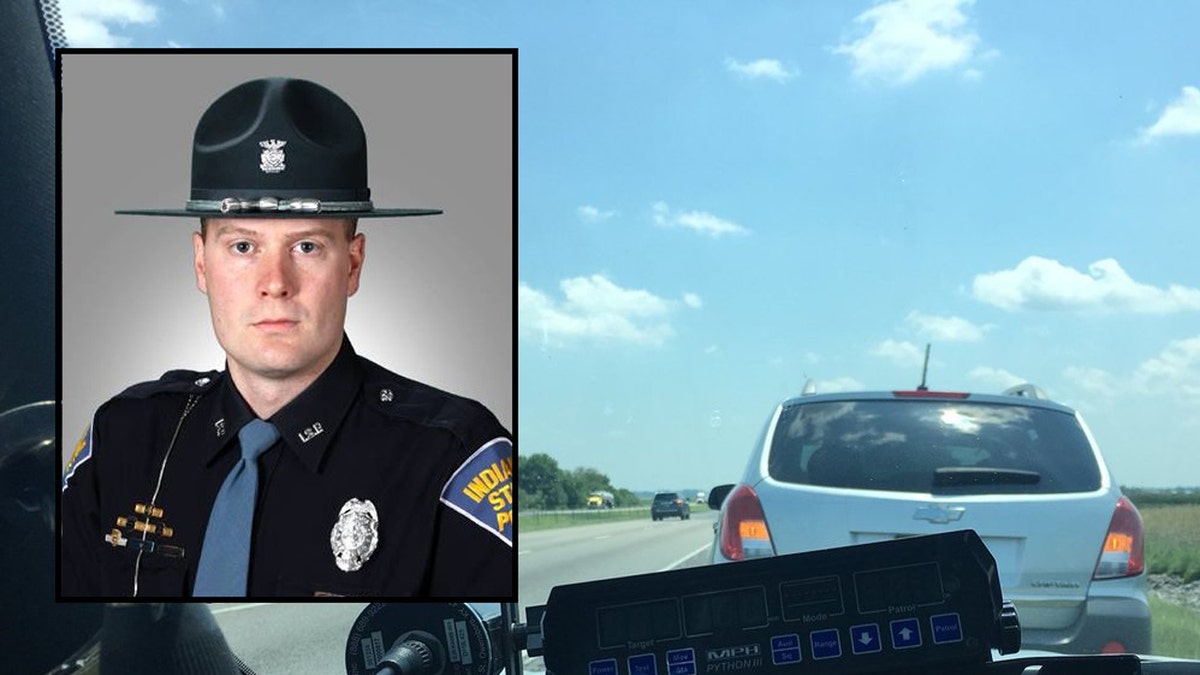
Indiana State Trooper, Sgt. Stephen Wheeles, went viral after he tweeted a photo of a car he pulled over for driving too slow in the left lane on the highway. (Indiana State Police/Twitter)
An Indiana state trooper’s tweet reminding people about the state’s so-called “slowpoke” or “move over” law went viral Saturday.
Sgt. Stephen Wheeles, an Indiana State Police Public Information Officer for the Versailles District, posted a photo of a car he pulled over for violating a law that went into effect in 2015 – going too slow in the left lane on the highway if a vehicle behind you is going faster, FOX 59 reported.
“I stopped this vehicle today for a left lane violation on I-65. The driver had approximately 20 cars slowed behind her because she would not move back to the right lane.” Wheeles wrote. “Again...if there are vehicles behind you, you must move to the right lane to allow them to pass.”
Wheeles said he was overcome by support, as many people expressed their frustration with drivers who go way too slow, some suggesting he move to their state, get a raise, or receive the Nobel Peace Prize.
IndyCar driver Graham Rahal tweeted: “This guy is my hero. Fast lane cruisers are one of my biggest frustrations!”
Former NFL Dallas Cowboys quarterback and Fox Sports analyst Troy Aikman also tweeted his support: “Finally!”
“Wow…I am overwhelmed,” Wheeles said. “You all are amazing!! Just trying to do my part to make the roadways safer for the traveling public. Blessings…”
Wheeles also addressed people who had questions about the application of the law, with one person asking if it applies even if the “slow” car is going the speed limit.
“The spirit of the law is that since many people drive well above the speed limit, it creates an ‘accordion effect’ as traffic starts backing up behind the slower vehicle,” Wheeles said. “This is where many of our crashes occur on the interstates. It’s all in the name of safety.”
But he added in another response that it isn’t intended to encourage people to break the speed limit.
“This is in no way encouraging people to speed. Those speeders are definitely in violation, also. Vehicles all travel at different speeds. It was put in place to keep left lane drivers (or the family ten cars back) from getting run over by faster traffic while in the left lane.”